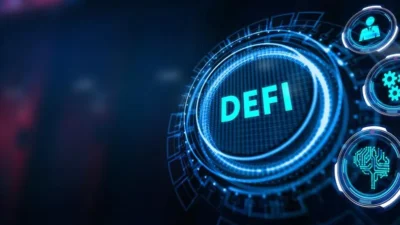In the pursuit of a more sustainable future, technology emerges as a powerful ally, offering innovative solutions to address environmental challenges and promote sustainable living practices. This blog explores the intersection of technology and sustainable living, showcasing how advancements in tech are shaping a greener and more eco-friendly world.
Tech Innovations in Energy Efficiency
Smart Home Energy Management
The advent of smart home technologies has revolutionized the way we manage energy consumption. Smart thermostats, lighting systems, and appliances allow users to monitor and control energy usage remotely. Machine learning algorithms analyze usage patterns to optimize energy efficiency, contributing to reduced energy consumption and lower utility bills.
Solar Energy Solutions
Solar technology continues to evolve, making harnessing renewable energy more accessible. Advanced solar panels with increased efficiency, solar roof tiles, and portable solar chargers empower individuals and businesses to generate clean energy. Energy storage solutions, such as high-capacity batteries, further enhance the viability of solar power, ensuring a consistent energy supply even during non-sunny periods.
Smart Cities for Sustainable Urban Living
Efficient Transportation Systems
Smart cities leverage technology to create more efficient and sustainable transportation systems. Electric vehicles, connected infrastructure, and intelligent traffic management contribute to reduced emissions and congestion. The integration of ride-sharing services and smart public transportation options promotes eco-friendly commuting alternatives.
Waste Management Technologies
Managing waste is a critical aspect of sustainable living. Smart waste management systems utilize sensors and data analytics to optimize waste collection routes, monitor bin fill levels, and promote recycling. This not only improves the efficiency of waste disposal but also minimizes the environmental impact of improper waste management.
Tech for Sustainable Agriculture
Precision Farming
Technology plays a vital role in promoting sustainability in agriculture through precision farming techniques. Drones, satellite imaging, and IoT sensors provide farmers with real-time data on soil health, crop conditions, and weather patterns. This information enables precise resource allocation, minimizing water and fertilizer usage while maximizing crop yields.
Vertical Farming and Controlled Environment Agriculture
Innovations in controlled environment agriculture, including vertical farming, hydroponics, and aeroponics, redefine traditional farming practices. These methods optimize resource utilization by growing crops in vertically stacked layers or soilless environments. This results in higher crop yields, reduced land usage, and decreased reliance on traditional farming inputs.
Advancements in Sustainable Materials
Biodegradable and Eco-Friendly Materials
The tech industry is increasingly exploring sustainable materials for product manufacturing. Biodegradable plastics, recycled metals, and plant-based materials are gaining popularity. Tech devices made from eco-friendly materials not only reduce environmental impact during production but also contribute to a circular economy by being recyclable at the end of their life cycle.
Blockchain for Supply Chain Transparency
Blockchain technology enhances transparency in supply chains, ensuring the traceability of products from raw materials to end-users. This transparency is crucial for verifying the sustainability claims of products, such as fair trade practices, eco-friendly sourcing, and adherence to ethical labor standards.
Smart Water Management Solutions
IoT-Based Water Monitoring
Efficient water management is essential for sustainable living, especially in the face of water scarcity challenges. IoT-based water monitoring systems track water usage, detect leaks, and optimize irrigation practices. These technologies enable both individuals and businesses to conserve water resources and promote sustainable water consumption.
Water Purification Technologies
In regions facing water quality issues, advanced water purification technologies play a crucial role. Innovations in desalination, water filtration, and purification systems provide clean and safe drinking water. These technologies address the global challenge of water scarcity while promoting responsible water usage.
Challenges and Considerations
Electronic Waste Management
The proliferation of technology also brings challenges, particularly in managing electronic waste (e-waste). Sustainable living requires addressing the proper disposal and recycling of electronic devices. Initiatives for responsible e-waste management, including recycling programs and eco-friendly design practices, are essential to mitigate the environmental impact of discarded technology.
Energy Consumption of Tech Devices
While technology contributes to sustainability, it’s essential to address the energy consumption of tech devices. Promoting energy-efficient designs, encouraging responsible usage, and adopting renewable energy sources for data centers are crucial steps in minimizing the carbon footprint associated with technology.
The Future Landscape of Tech and Sustainable Living
Emergence of Circular Economy Models
The future holds the promise of a circular economy where products are designed with recycling and sustainability in mind. Tech companies are exploring closed-loop systems, refurbishment programs, and eco-friendly packaging to minimize waste and extend the life cycle of electronic devices.
Integration of AI for Sustainability
The integration of Artificial Intelligence (AI) holds immense potential for advancing sustainability efforts. AI algorithms can optimize energy usage, predict maintenance needs for machinery, and analyze vast datasets to identify areas for resource efficiency. The synergy between AI and sustainable living is likely to drive innovations across various sectors.
Conclusion
In conclusion, the intersection of technology and sustainable living marks a paradigm shift in how we approach environmental challenges. From energy-efficient smart homes to sustainable agriculture practices and advancements in materials, technology serves as a catalyst for positive change. While challenges exist, the ongoing innovations and the commitment to responsible practices signal a future where technology and sustainability go hand in hand.
Embracing the intersection of tech and sustainable living is not just a choice but a necessity for creating a resilient and eco-friendly world. As technology continues to evolve, its role in promoting sustainable practices becomes increasingly vital, paving the way for a future where innovation and environmental consciousness coexist harmoniously.



















Comments